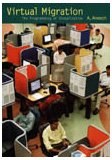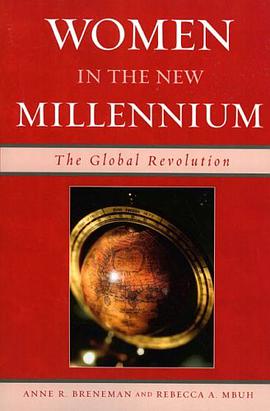

具体描述
Workers in India program software applications, transcribe medical dictation online, chase credit card debtors, and sell mobile phones, diet pills, and mortgages for companies based in other countries around the world. While their skills and labour migrate abroad, these workers remain Indian citizens, living and working in India. A. Aneesh calls this phenomenon 'virtual migration', and in this groundbreaking study, he examines the emerging 'trans-national virtual space' where labour and vast quantities of code and data cross national boundaries, but the workers themselves do not. Through an analysis of the work of computer programmers in India working for the U.S. software industry, Aneesh argues that the programming code that connects globally dispersed workers through data servers and computer screens is the key organizing structure behind the growing phenomenon of virtual migration.This 'rule of code', he contends, is a crucial and understudied aspect of globalization. Aneesh draws on the sociology of science, social theory, and research on migration to illuminate the practical and theoretical ramifications of virtual migration. He combines these insights with his extensive ethnographic research in offices in three locations in India - Delhi, Gurgaon, and Noida - and one location in New Jersey. To bring out the particularities of virtual migration, Aneesh compares it to the physical migration of programmers called 'body shopping,' the practice of bringing programmers from other countries to the United States (in this case, from India to New Jersey) to work on site. A significant contribution to the social theory of globalization, "Virtual Migration" maps the expanding trans-national space where globalization is enacted via computer programming code.
作者简介
目录信息
读后感
评分
评分
评分
评分
用户评价
相关图书
本站所有内容均为互联网搜索引擎提供的公开搜索信息,本站不存储任何数据与内容,任何内容与数据均与本站无关,如有需要请联系相关搜索引擎包括但不限于百度,google,bing,sogou 等
© 2026 book.wenda123.org All Rights Reserved. 图书目录大全 版权所有




















